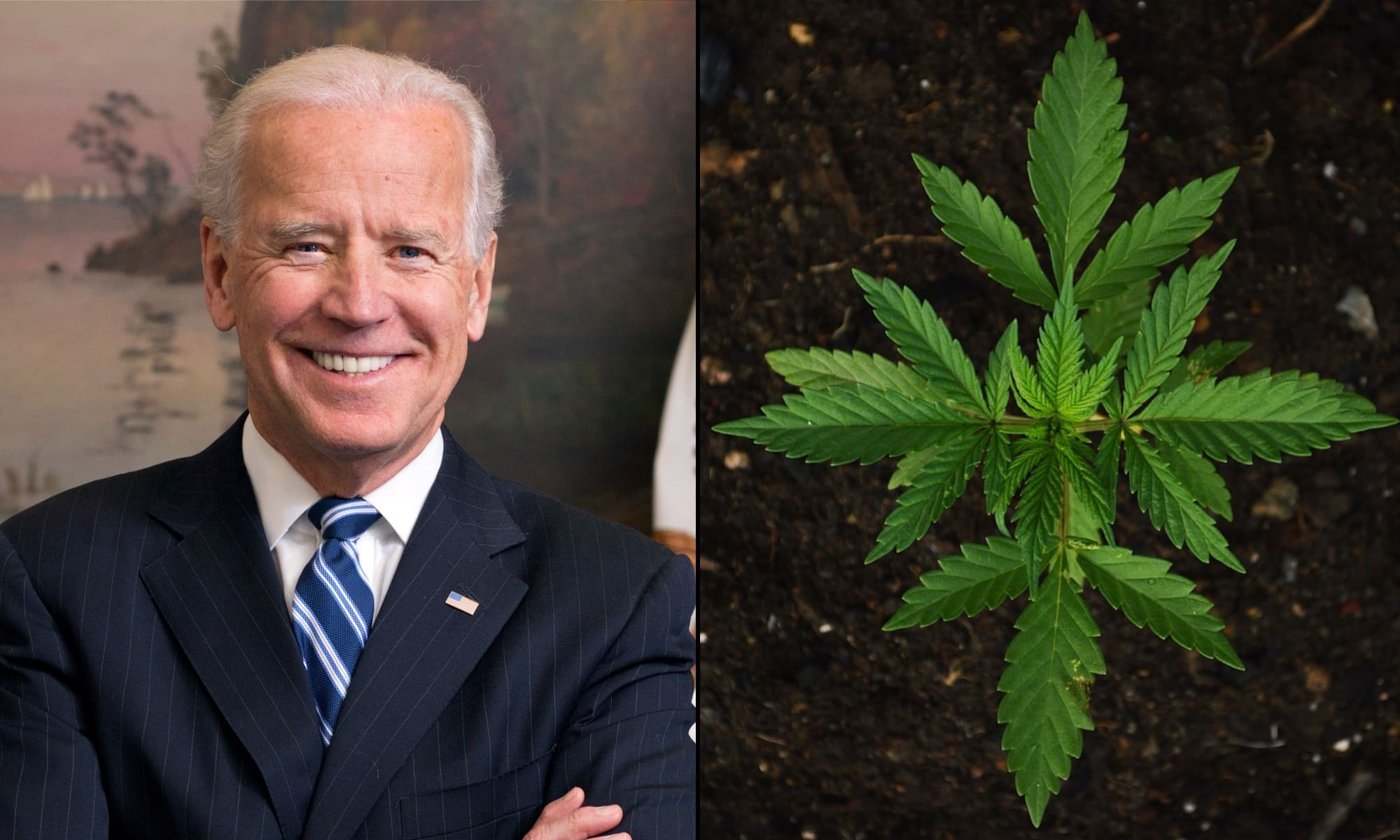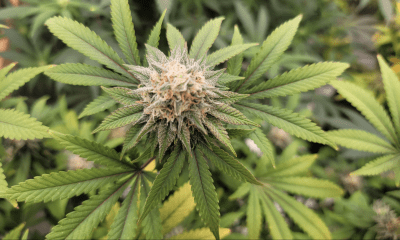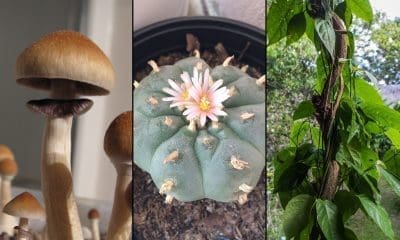Politics
As White House Hosts Marijuana Pardon Recipients, It’s Time For Bolder Action From Biden (Op-Ed)

“He should immediately commute the sentences of those sitting in prison for conduct involving amounts of cannabis that are far less than what state-regulated dispensaries routinely handle on a daily basis.”
By Sarah Gersten, Last Prisoner Project
As President Biden listed off his first-term accomplishments during his State of the Union address, Richeda Ashmeade sat studying for midterms in her last year of law school. Listening to the president tout his executive actions on cannabis, she was acutely aware of those whom his reforms have left behind. Despite all the rhetoric and applause breaks, her father, Ricardo Ashmeade, is still serving a 22-year sentence and is one of the thousands of people still in federal prison for cannabis.
The specific actions Biden highlighted during his address were related to his October 2022 proclamation, in which he pardoned all prior federal offenses of simple marijuana possession, a move that was expanded on late last year to bring relief to an estimated 13,000 Americans. His executive action also initiated a review process that could result in cannabis being reclassified under the Controlled Substances Act at the federal level and moved out of Schedule I, the most dangerous drug classification. Yet neither of these actions would affect those who have suffered the most devastating consequences of prohibition, families like the Ashmeades.
Biden’s actions are being hailed as historic, but in reality, they represent peripheral changes that signal the reevaluation of cannabis but not the release of cannabis prisoners or relief for those who continue to be burdened by the lasting consequences of the carceral system. In short, these announcements represent progress but not justice. But that hasn’t stopped the administration from leveraging these actions with voters.
On Friday, Vice President Harris gathered several of the cannabis pardon recipients, along with rapper Fat Joe, for a public discussion about criminal justice reform at the White House. Clearly, the administration sees the political power of undoing the harms caused by the criminalization of cannabis—a sentiment that is backed up by polling data that shows the vast majority of Americans feel cannabis should no longer be criminalized.
Of course, the timing and context here matter, with these moves coming as the highly contentious presidential race ramps up. When he made his remarks, Biden became the first president in over 35 years to mention marijuana during a State of the Union address. The last president to mention cannabis during the address was Reagan, who listed marijuana among the prime enemies of the people and as a reason for the necessity of the war on drugs.
Not too long ago, taking a progressive stance on cannabis policy and the pardoning of those with marijuana offenses would’ve been seen as far too risky a move for any sitting president to make. President Clinton famously “didn’t inhale,” and despite the Cole memo being released during the Obama administration, data on federal prosecutions reflect that his administration was cracking down on medical marijuana dispensaries and growers just as harshly as his predecessors. Biden’s championing of his progressive marijuana reforms reflects just how much the nation’s perception of cannabis has evolved since the Reagan era, and how much the president himself has evolved since his key role in authoring some of the most punitive drug laws in our nation’s history.
While the symbolic significance of President Biden’s actions should be lauded, they are still just the first step in the long road toward justice. Simple pardons will not result in the release of any of the estimated 2,800 people still incarcerated in federal prison due to other nonviolent cannabis-related convictions, nor will these pardons shield the offense from the individual’s criminal record. Furthermore, they do nothing for the tens of thousands of Americans incarcerated on state-level charges, where the vast majority of cannabis-related convictions happen.
To truly fulfill his oft-repeated statement that no one should be jailed for marijuana, the president will need to take much more robust clemency action. He should immediately commute the sentences of those sitting in prison for conduct involving amounts of cannabis that are far less than what state-regulated dispensaries routinely handle on a daily basis. Then, the president must do more than just call on governors to pardon people with state-level marijuana convictions—he has to make it easy for them. That would include, at a minimum, allowing states to access federal dollars to spin up “cannabis pardoning projects,” not dissimilar from what state officials have done in Pennsylvania.
With the stroke of a pen, the president can ensure his actions match his rhetoric and fulfill his campaign promises by freeing thousands of Americans languishing behind bars for the same activity that many now profit from. If he truly wants to right the wrongs of history and repair the harms of our nation’s failed drug war, this initial progress must be followed up with bolder action—action that would actually lead to freedom for cannabis prisoners.
That’s why I sent a letter to President Biden outlining the measures he could take to ensure that no one remains in prison for weed at the federal level, including a list of over 150 clemency applicants the president could take action on today. These are individuals who are facing decades-long or even life sentences for nonviolent cannabis-only offenses. Individuals who have been torn from their communities and their loved ones. Individuals like Ricardo Ashmeade.
It’s also why LPP is organizing the 4/20 unity day of action, where cannabis advocates and the families of those impacted by the war on drugs will mobilize to urge the federal government to decriminalize cannabis and hold Biden to his promise. The president alone cannot fully legalize and regulate marijuana, but his broad clemency power does afford him the ability to reunite Ricardo and Richeda Ashmeade in time for her graduation. He just needs the boldness to act.
Sarah Gersten is the executive director and general counsel for the Last Prisoner Project. She is also a member of the National Cannabis Bar Association, the NORML Legal Committee and the National Lawyers Guild.
Biden Tells Supporter He’s ‘Taking Care’ Of Marijuana Reform At Campaign Stop
















